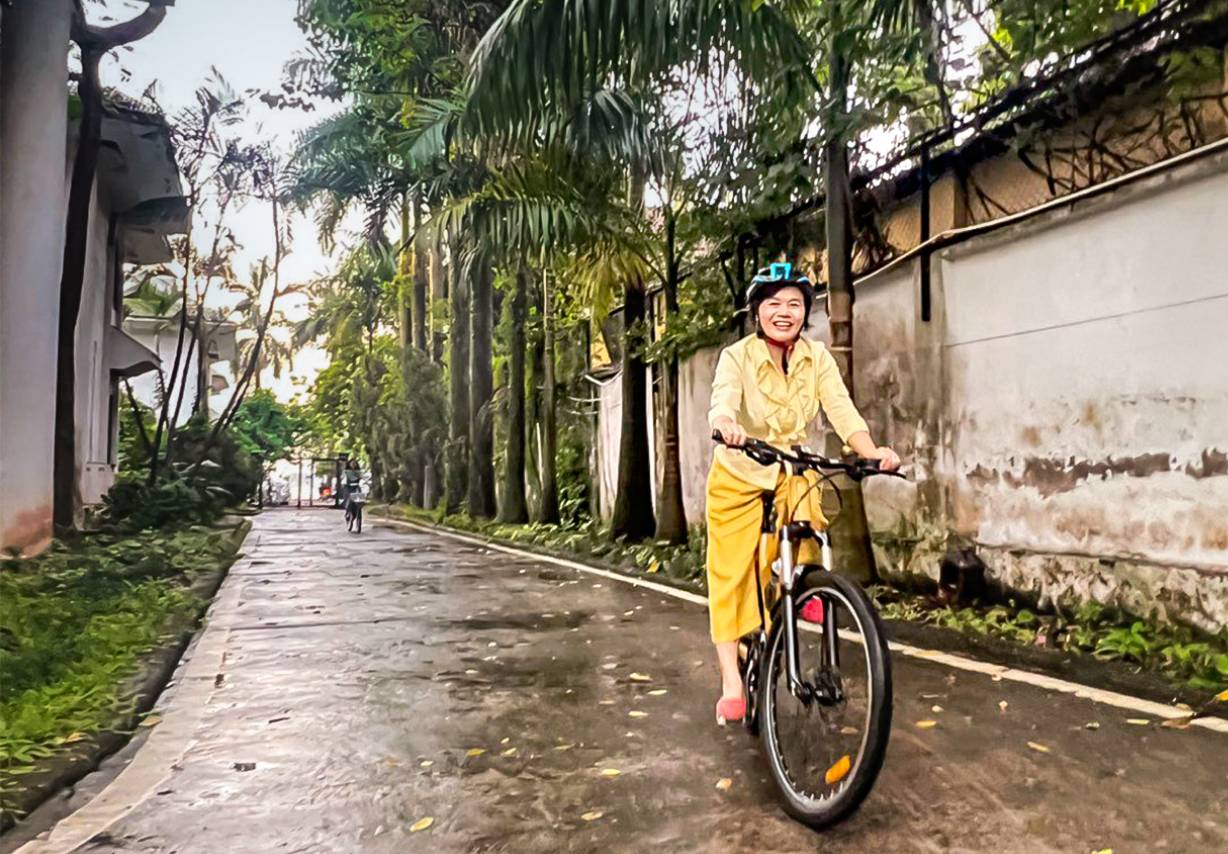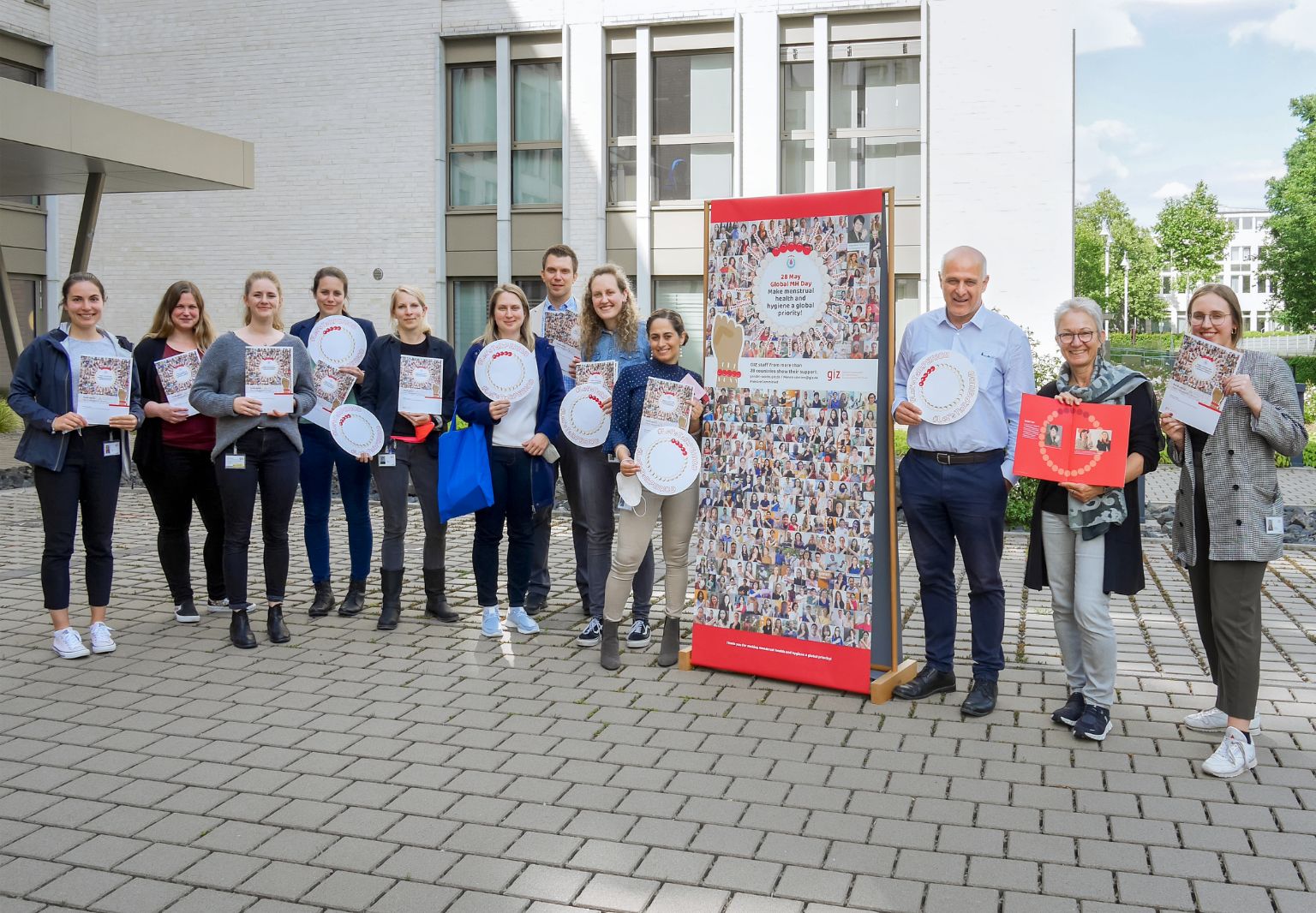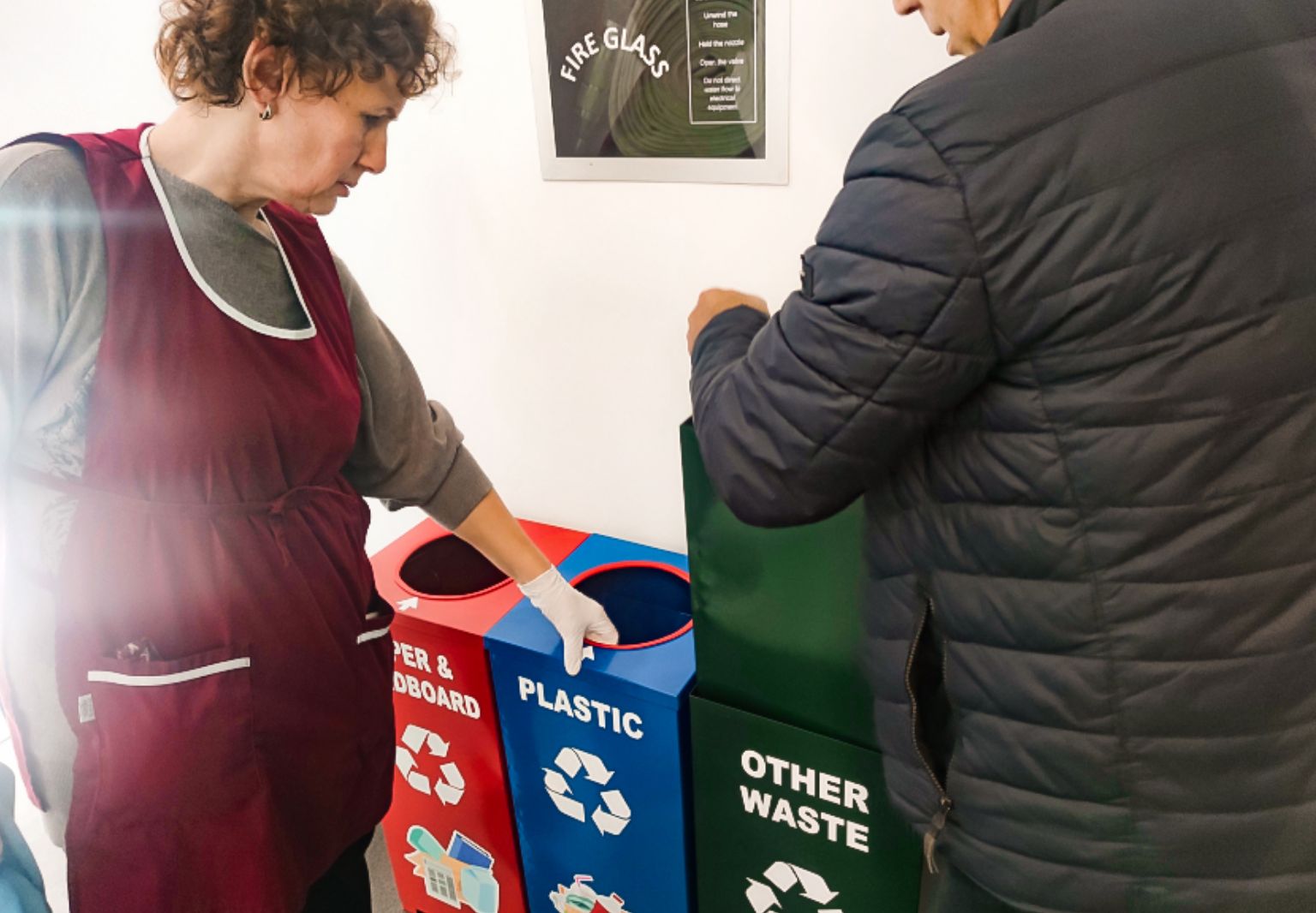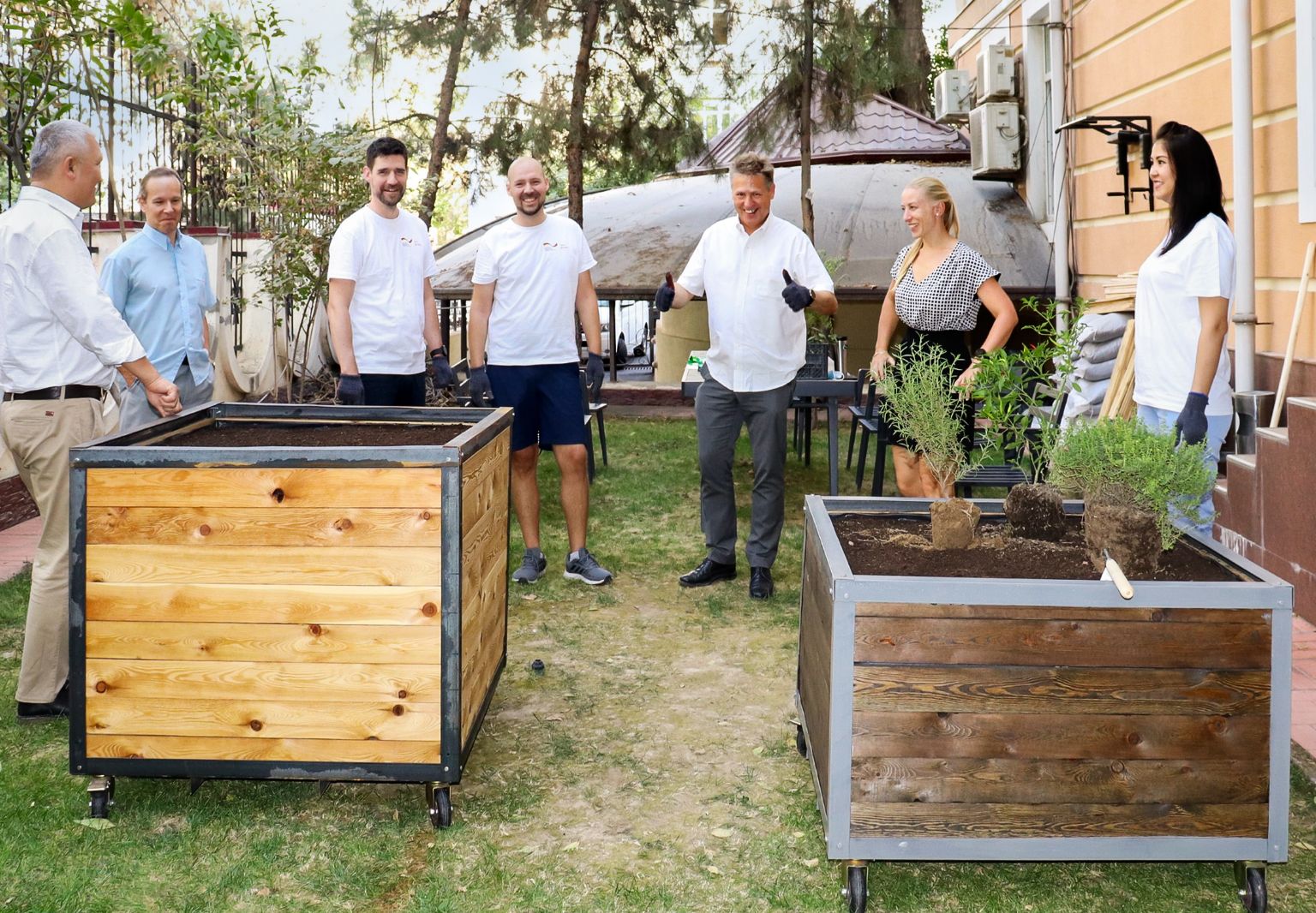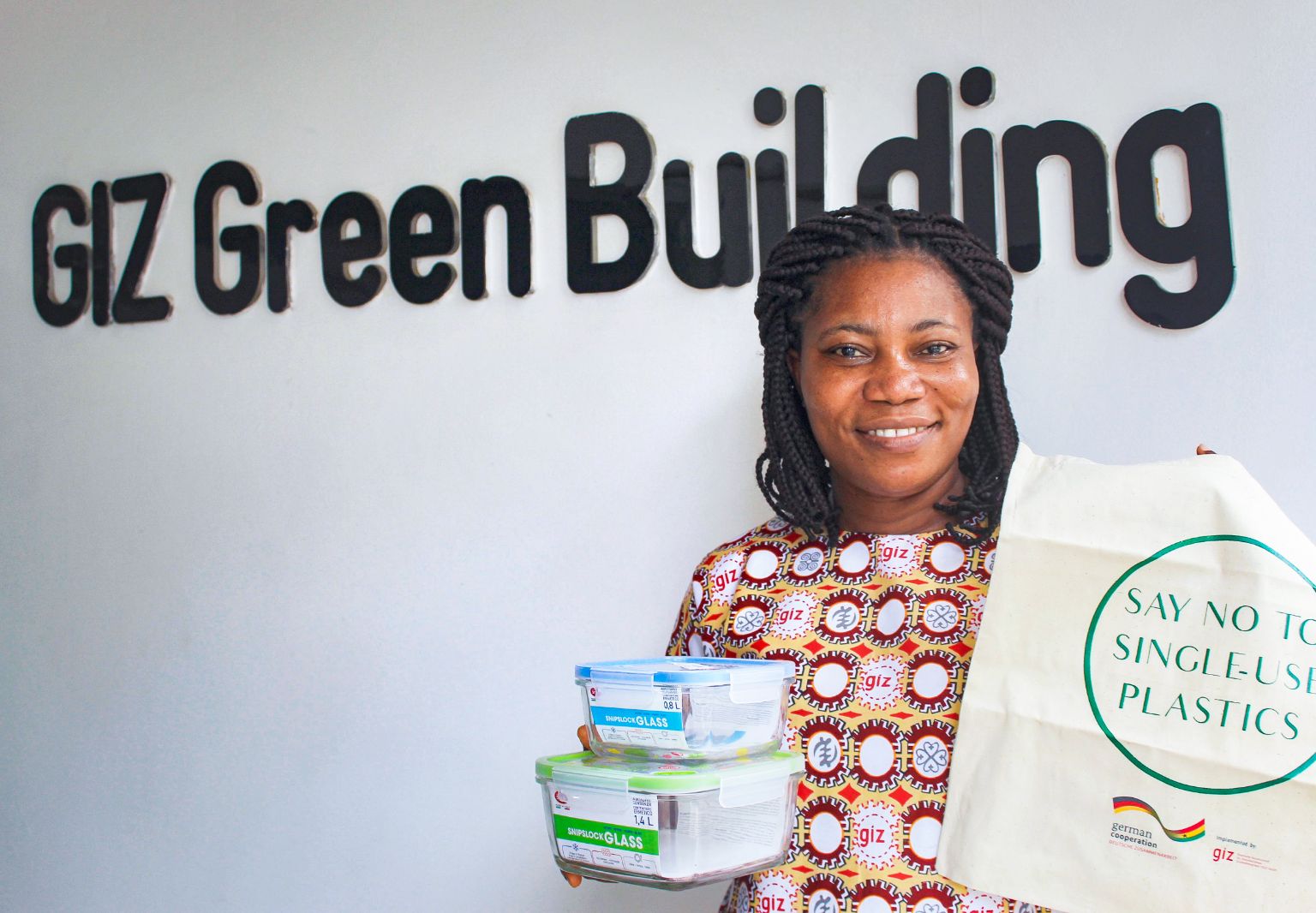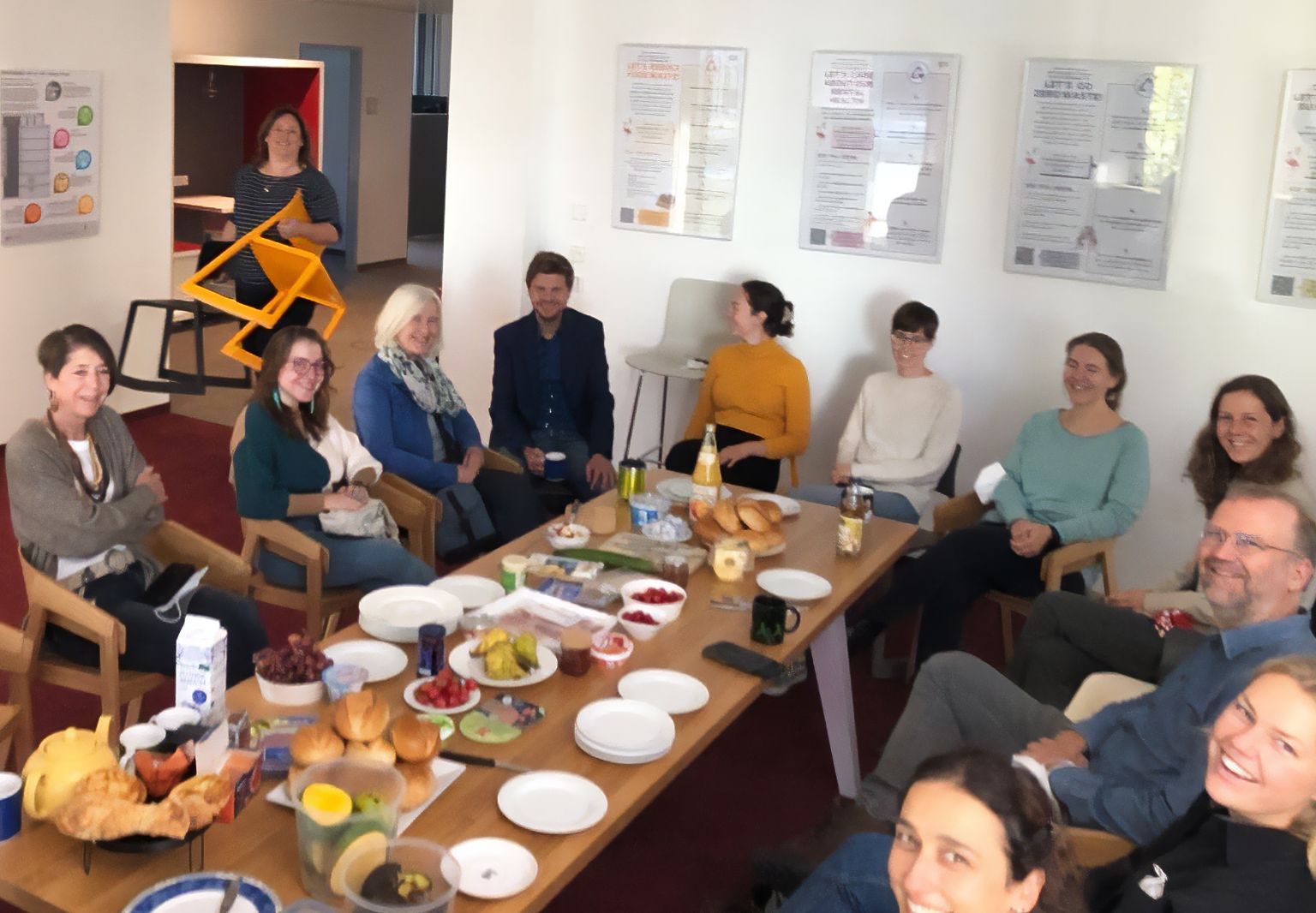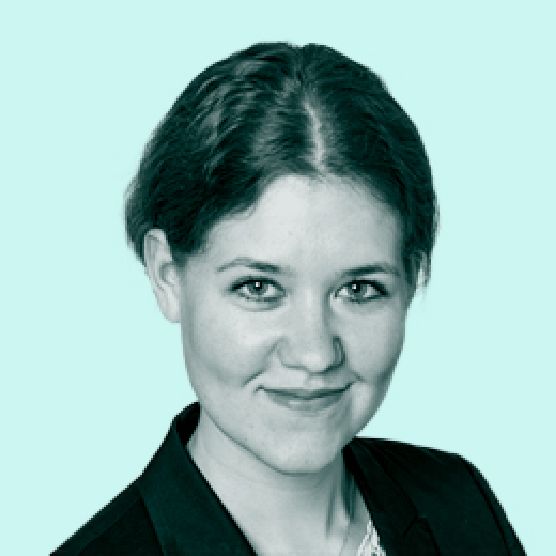Bicycles are now something of a rarity on the streets of the Vietnamese capital Hanoi. Anyone who can afford to rides a moped. It is no wonder that the people working in GIZ’s environmental and climate cluster in Viet Nam attract a great deal of attention as they ride their bamboo bike to appointments. ‘We are constantly asked about the bike,’ says project manager Daniel Herrmann, ‘including by GIZ colleagues and project partners.’ The unusual two-wheeler is one of four bicycles belonging to the Coco Bike-Sharing Initiative, which Herrmann’s team shares with colleagues from the neighbouring Energy Support Programme (ESP).
The bike-sharing scheme was started by Trang Truong, one of the staff members on Herrmann’s team, in conjunction with colleagues from ESP. She knows all about this field since she works on a public bike-sharing scheme in the university town of Huế as part of the German Federal Ministry for Economic Cooperation and Development’s develoPPP programme. The idea of bike-sharing was partially financed from the GIZ Sustainability Office’s sustainability fund, which launches a company-wide call for ideas every year; the most creative and sustainable activities receive funding.
